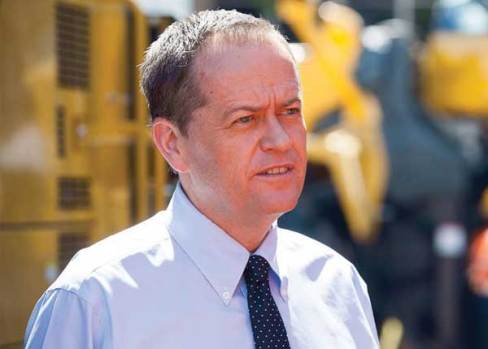
The federal public service is plagued by a lack of internal expertise caused by reliance on outsourcing, a lack of inter-departmental mobility and poor wage growth, the APS Review has been told.
Thousands of successive job cuts and the reliance on contractor services resulting from the introduction of an average staffing level (ASL) cap are eroding expertise and creating a “capability gap” within the public service, the Community and Public Services Union (CPSU) argued in its submission to the APS Review.
These job cuts create a “false economy” where the work of APS employees is replaced by external providers at the expense of specialist capability and service delivery, the public servants’ union said.
“Essential skills are being lost, and the capacity and capability of the APS is being hollowed out. Government funding is being squandered on expensive external providers, often with no direct accountability and a lack of transparency. In most cases this work would be done better, more efficiently and more effectively by directly employed staff,” it said.
Professor Andrew Stuart Podger, a former public servant and honorary professor of public policy at ANU, told the review that capability gaps are the result of both a risk averse culture and excessive outsourcing.
“Despite the increasing proportion of graduates and post-graduates in the APS, there is evidence of emerging capability gaps. The Moran Review identified weaknesses in strategic policy advising and human resources management, these being confirmed in many of the subsequent capability reviews, along with a risk averse culture, too centralised control within departments and poor project management,” he said.
“Another likely contributor is the increasing reliance on third parties for policy advice and service delivery, affecting career paths and the ability to retain specialist knowledge.”
Professor Podger called on the review to examine the evidence already collected in reviews such as the Moran Review to “clarify” where capability has been lost and how it might be regained.
Poor mobility, wage growth
Stagnant wage growth and a lack of inter-departmental mobility are further eroding expertise within the public service, current APS employees told the review.
The APS needs to “even the playing field” by offering more competitive remuneration and equalising pay to incentivise mobility, a public servant in the service’s HR department argued:
“In state and territory government, the pay scales are 10 to 15 per cent higher and we lose good talent. I recently took a $15,000 pay cut to come from ACT Government back to Melbourne, where the work level standard is the same. I think mobility will help unlock diversity and inclusion and breed new and better ideas across the service if staff can move.”
Another public servant who has been working for the Federal Government since 1989 similarly argued that remuneration and leave entitlements need to be standardised.
“My proposal for a future APS would be to have the same pay and conditions for all employees. I find it amazing an employee working for the same employer (Federal Government), same classification and same skills can be paid up to $15,000 extra from one agency to another,” they said.
Sebastian Cabrera Torres, another APS employee, said that inter-departmental mobility is riddled with bureaucracy and often merely procedural rather than genuine opportunities to move around.
“Why must there be so much red tape when one wishes to perform other duties at level,” he asked.
A former public servant who led workforce planning teams in multiple APS departments argued that moving to agile team-based workforces with a mix of skills would help to improve capabilities in the public service.
“Critical to this capability being realised is that it needs to be managed through a central agency such as the APSC. The current siloed nature of departments drives duplication and inefficiencies because while efforts are made to foster transfer of individuals between departments, different EAs provide financial incentives to employees identifying as members of a Department rather than the APS,” the former public servant said.
Project management key
Veteran APS management consultant Tanner James told the review that the APS must adopt a best practice program and project management to establish professional competencies and better manage policies.
John Howarth, founder and executive chairman at Tanner James Management Consultants, said that adopting global industry-leading best practices and project and program management methods, such as Prince 2 and MSP, can help build the skills to help organisations manage change.
“Embedding them in an organisation will support the delivery of strategic business objectives in the most cost-effective way possible,” Mr Howard said in his submission.
“For 24 years I have run a small business that is trying to help the APS skilfully adopt global best practice program and project management. We haven’t achieved that – yet. But we’ll keep trying. Pockets of the APS have success, but then the SES change and all the good work is lost.”
Mr Howarth said he has called on the APS to take on best practice and project management methods “several times.”
“So many times in fact that I am actually going to provide most of my submission in the form of previous submissions. It provides a sorry history of the APS’s inability to reform itself,” he said.
Submissions to the APS review are open until midnight on 31 July and can be made here.
Follow Government News for ongoing coverage of the APS Review.
Comment below to have your say on this story.
If you have a news story or tip-off, get in touch at editorial@governmentnews.com.au.
Sign up to the Government News newsletter



I used to work with the Commonwealth at Canberra while my family was living at Sydney due to my son’s spasticity issues. Lack of inter-departmental mobility forced me to leave the Commonwealth after 13 years.